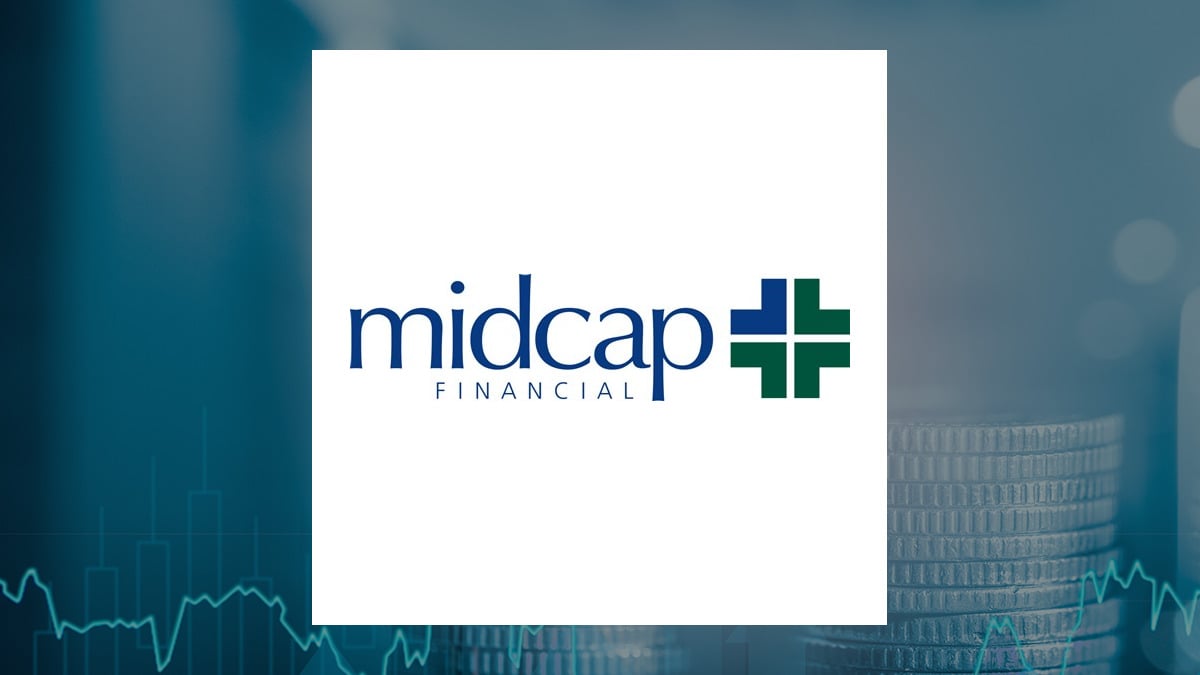High Income Securities Fund (NYSE:PCF – Get Free Report) and MidCap Financial Investment (NASDAQ:MFIC – Get Free Report) are both small-cap finance companies, but which is the superior investment? We will contrast the two businesses based on the strength of their risk, profitability, institutional ownership, earnings, valuation, dividends and analyst recommendations.
Analyst Recommendations
This is a summary of recent ratings and price targets for High Income Securities Fund and MidCap Financial Investment, as provided by MarketBeat.com.
| Sell Ratings | Hold Ratings | Buy Ratings | Strong Buy Ratings | Rating Score | |
| High Income Securities Fund | 0 | 0 | 0 | 0 | 0.00 |
| MidCap Financial Investment | 0 | 3 | 4 | 0 | 2.57 |
MidCap Financial Investment has a consensus price target of $14.71, suggesting a potential upside of 11.90%. Given MidCap Financial Investment’s stronger consensus rating and higher probable upside, analysts clearly believe MidCap Financial Investment is more favorable than High Income Securities Fund.
Risk & Volatility
Dividends
High Income Securities Fund pays an annual dividend of $0.74 per share and has a dividend yield of 11.3%. MidCap Financial Investment pays an annual dividend of $1.52 per share and has a dividend yield of 11.6%. MidCap Financial Investment pays out 97.4% of its earnings in the form of a dividend, suggesting it may not have sufficient earnings to cover its dividend payment in the future.
Institutional & Insider Ownership
16.6% of High Income Securities Fund shares are held by institutional investors. Comparatively, 28.5% of MidCap Financial Investment shares are held by institutional investors. 1.6% of High Income Securities Fund shares are held by insiders. Comparatively, 1.1% of MidCap Financial Investment shares are held by insiders. Strong institutional ownership is an indication that hedge funds, endowments and large money managers believe a company is poised for long-term growth.
Profitability
This table compares High Income Securities Fund and MidCap Financial Investment’s net margins, return on equity and return on assets.
| Net Margins | Return on Equity | Return on Assets | |
| High Income Securities Fund | N/A | N/A | N/A |
| MidCap Financial Investment | 37.05% | 11.37% | 4.70% |
Valuation & Earnings
This table compares High Income Securities Fund and MidCap Financial Investment”s revenue, earnings per share (EPS) and valuation.
| Gross Revenue | Price/Sales Ratio | Net Income | Earnings Per Share | Price/Earnings Ratio | |
| High Income Securities Fund | $19.13 million | 6.40 | N/A | N/A | N/A |
| MidCap Financial Investment | $121.29 million | 10.17 | $118.76 million | $1.56 | 8.43 |
MidCap Financial Investment has higher revenue and earnings than High Income Securities Fund.
Summary
MidCap Financial Investment beats High Income Securities Fund on 11 of the 13 factors compared between the two stocks.
About High Income Securities Fund
 High Income Securities Fund is a closed-ended balanced income mutual fund launched and managed by Putnam Investment Management, LLC. The fund is co-managed by Putnam Investments Limited. It invests in the fixed income markets of the United States. The fund seeks to invest in stocks of companies operating across diversified sectors. It invests in both convertible bonds and convertible preferred stocks. The fund benchmarks the performance of its portfolio against a composite index comprising of 50% JPMorgan Developed High Yield Index and 50% BofA Merrill Lynch AllConvertibles Speculative Quality Index. The fund was formerly known as Putnam High Income Securities Fund High Income Securities Fund was formed on July 9, 1987 and is domiciled in the United States.
High Income Securities Fund is a closed-ended balanced income mutual fund launched and managed by Putnam Investment Management, LLC. The fund is co-managed by Putnam Investments Limited. It invests in the fixed income markets of the United States. The fund seeks to invest in stocks of companies operating across diversified sectors. It invests in both convertible bonds and convertible preferred stocks. The fund benchmarks the performance of its portfolio against a composite index comprising of 50% JPMorgan Developed High Yield Index and 50% BofA Merrill Lynch AllConvertibles Speculative Quality Index. The fund was formerly known as Putnam High Income Securities Fund High Income Securities Fund was formed on July 9, 1987 and is domiciled in the United States.
About MidCap Financial Investment
 MidCap Financial Investment Corporation (Former name Apollo Investment Corporation) is business development company and a closed-end, externally managed, non-diversified management investment company. It is elected to be treated as a business development company (BDC) under the Investment Company Act of 1940 (the 1940 Act) specializing in private equity investments in leveraged buyouts, acquisitions, recapitalizations, growth capital, refinancing and private middle market companies. It provides direct equity capital, mezzanine, first lien secured loans, stretch senior loans, unitranche loans, second lien secured loans and senior secured loans, unsecured debt, and subordinated debt and loans. It also seeks to invest in PIPES transactions. The fund may also invest in securities of public companies that are thinly traded and may acquire investments in the secondary market and structured products. It prefers to invest in preferred equity, common equity / interests and warrants and makes equity co-investments. It may invest in cash equivalents, U.S. government securities, high-quality debt investments that mature in one year or less, high-yield bonds, distressed debt, non-U.S. investments, or securities of public companies that are not thinly traded. It also focuses on other investments such as collateralized loan obligations (CLOs) and credit-linked notes (CLNs). The fund typically invests in construction and building materials, business services, plastics & rubber, advertising, capital equipment, education, cable television, chemicals, consumer products/goods durable and non-durable and customer services, direct marketing, energy oil & gas, electricity and utilities. The fund also invest in aerospace & defense, wholesale, telecommunications, financial services, hotel, gaming, leisure, restaurants; environmental industries, healthcare and pharmaceuticals, high tech industries, beverages, food and tobacco, manufacturing, media diversified & production, printing and publishing, retail, automation, aviation and consumer transport, transportation, cargo and distribution. It primarily invests in United States. It primarily invests between $20 million and $250 million in its portfolio companies and EBITDA with less than $75 million. The fund seeks to make investments with stated maturities of five to 10 years.
MidCap Financial Investment Corporation (Former name Apollo Investment Corporation) is business development company and a closed-end, externally managed, non-diversified management investment company. It is elected to be treated as a business development company (BDC) under the Investment Company Act of 1940 (the 1940 Act) specializing in private equity investments in leveraged buyouts, acquisitions, recapitalizations, growth capital, refinancing and private middle market companies. It provides direct equity capital, mezzanine, first lien secured loans, stretch senior loans, unitranche loans, second lien secured loans and senior secured loans, unsecured debt, and subordinated debt and loans. It also seeks to invest in PIPES transactions. The fund may also invest in securities of public companies that are thinly traded and may acquire investments in the secondary market and structured products. It prefers to invest in preferred equity, common equity / interests and warrants and makes equity co-investments. It may invest in cash equivalents, U.S. government securities, high-quality debt investments that mature in one year or less, high-yield bonds, distressed debt, non-U.S. investments, or securities of public companies that are not thinly traded. It also focuses on other investments such as collateralized loan obligations (CLOs) and credit-linked notes (CLNs). The fund typically invests in construction and building materials, business services, plastics & rubber, advertising, capital equipment, education, cable television, chemicals, consumer products/goods durable and non-durable and customer services, direct marketing, energy oil & gas, electricity and utilities. The fund also invest in aerospace & defense, wholesale, telecommunications, financial services, hotel, gaming, leisure, restaurants; environmental industries, healthcare and pharmaceuticals, high tech industries, beverages, food and tobacco, manufacturing, media diversified & production, printing and publishing, retail, automation, aviation and consumer transport, transportation, cargo and distribution. It primarily invests in United States. It primarily invests between $20 million and $250 million in its portfolio companies and EBITDA with less than $75 million. The fund seeks to make investments with stated maturities of five to 10 years.
Receive News & Ratings for High Income Securities Fund Daily - Enter your email address below to receive a concise daily summary of the latest news and analysts' ratings for High Income Securities Fund and related companies with MarketBeat.com's FREE daily email newsletter.
